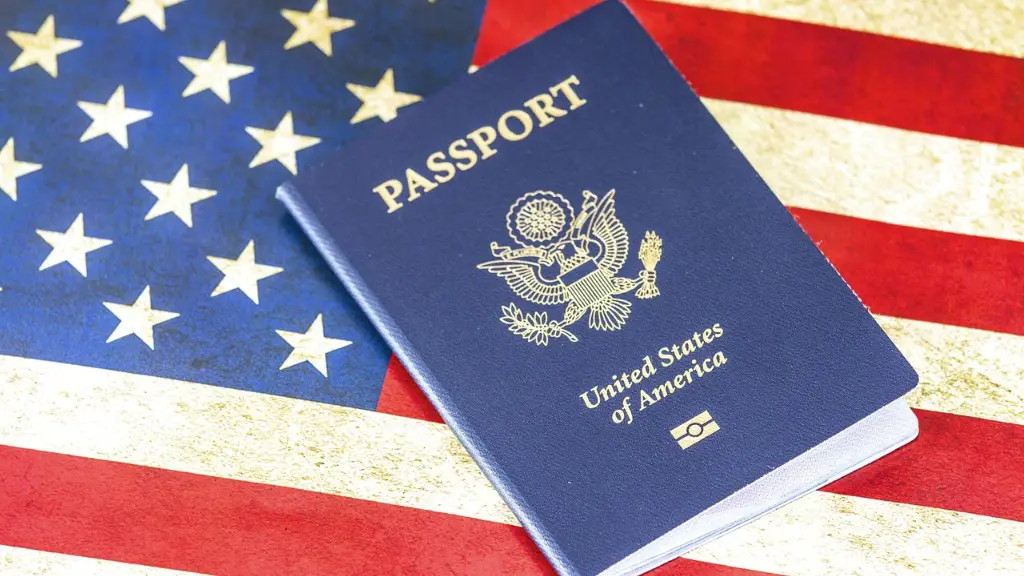If you’re planning a trip, you may be wondering if you need travel insurance. Travel insurance can help protect you from a number of unexpected expenses that can come up before or during your trip. Here’s what you need to know about travel insurance.
There are a few things to know about travel insurance before you purchase a policy. First, you should make sure that the policy covers you for the activities you plan to do while on your trip. For example, if you are planning to go hiking, you will want to make sure your policy covers you for any injuries that you may sustain while on the trail. Second, you should be aware of the policy’s limit on the amount of coverage you can receive. This is especially important if you are planning to travel to a country with high medical costs. Finally, you should make sure you understand the policy’s exclusions, which are the circumstances under which the insurer will not pay out.
What is usually covered by travel insurance?
A comprehensive travel insurance policy is a must-have for any traveler. It usually covers delays, cancellations due to sickness or death, lost luggage, and some emergency medical costs. Having this type of policy in place will give you peace of mind while you’re away from home.
If you’re considering cancelling or interrupting your trip due to an event that has already happened or is happening now (like a hurricane or an outbreak of a disease), or is expected to happen in the near future, your travel insurance likely won’t cover you.
What is travel insurance and how does it work
Travel insurance is a type of insurance that covers financial losses and other risks that may occur while traveling. It can cover expenses such as lost or delayed luggage, cancelled reservations, and delayed flights. It can also cover injuries and illnesses that occur while traveling.
1. Answer a few questions: In order to get a quote, you’ll need to answer some questions about your trip. This will include things like your travel dates, destination, and the type of trip you’re taking.
2. Get a quote: Once you’ve answered the questions, you’ll get a quote for the cost of the insurance. Make sure to compare quotes from a few different companies before you decide on one.
3. Choose your plan: Once you’ve decided on a company, you’ll need to choose a plan. There are typically a few different options to choose from, so make sure you pick one that covers what you need.
4. Review the coverage and read your policy: Before you buy the insurance, make sure you understand the coverage and read the policy. This way, you’ll know what’s covered and what’s not.
5. Buy coverage: Once you’ve decided on a plan and reviewed the coverage, you can buy the insurance. Most companies will let you pay online or over the phone.
What is a reasonable amount to pay for travel insurance?
If you are planning a trip, it is a good idea to purchase travel insurance. Travel insurance can protect you from loss due to cancelled plans, lost baggage, medical emergencies, and more. The cost of travel insurance varies depending on your age, travel destination, cover level, and if you have any pre-existing health conditions.
There are a few things to consider when comparing travel insurance companies. The first is the price – which company offers the best value for your needs? The second is coverage limits – what is the maximum amount of coverage each company offers? Finally, consider the level of coverage – some companies offer more comprehensive coverage than others.
Travelex is the best overall travel insurance company, offering great value and coverage limits. Allianz is a close second, offering slightly higher coverage limits. InsureMyTrip is the best value travel insurance company, offering a wide range of coverage options at a very reasonable price. World Nomads offers the most comprehensive coverage of any travel insurance company, making it a great choice for those who need a high level of protection.
What is the most common travel insurance claim?
This is in line with what we would expect, as these are all situations that can be incredibly difficult and expensive to deal with when you’re traveling. It’s important to have insurance that can help cover these costs, so that you’re not left completely stranded or in debt if something goes wrong.
There are three types of travel insurance coverage: medical insurance, cancellation/interruption insurance, and luggage insurance.
Medical insurance covers medical expenses incurred while traveling. This can include emergency medical evacuation, hospital stays, and doctor visits.
Cancellation/interruption insurance covers the cost of cancelling or interrupting a trip. This can include the cost of airfare, hotel, and other travel expenses.
Luggage insurance covers the cost of lost or damaged luggage. This can include replacement of lost items, repair of damaged items, and reimbursement for travel expenses incurred as a result of lost or damaged luggage.
Can I get a full refund with travel insurance
If you cancel your trip for a covered reason, most travel insurance policies will reimburse you for your nonrefundable, prepaid expenses. This coverage is typically included in comprehensive policies. Be sure to check your policy for specific covered reasons and coverage limits.
There are two basic types of travel insurance: Vacation Plans and Travel Medical Plans. Vacation Plans provide the most coverage, including trip cancellation. Travel Medical Plans provide medical coverage while traveling abroad.
What are three benefits travel insurance?
Your travel health insurance policy should always cover medical evacuation, pre-existing medical conditions, and repatriation in case of death. You should understand potential exclusions before you need to make a claim.
A travel medical policy is a type of insurance that covers the medical expenses of a policyholder while traveling. This can include doctor or hospital visits, medical evacuation and repatriation. A trip insurance policy can cover the financial investment of an international or domestic trip, which can include the cost of airfare, hotels and other expenses.
When should you start your travel insurance
travel insurance is something you should take as soon as you have booked your holiday. This is because it is possible that you might have to cancel your trip after booking but before you have actually left. For example, you may get injured or fall too ill to travel.
There are a few things to consider when deciding whether or not to buy single trip travel insurance. The most important factor is whether or not your current health insurance will cover you while you are travelling. If your health insurance does not cover you while you are travelling, then it is definitely worth it to buy single trip travel insurance. Another factor to consider is whether or not you will be travelling with any valuable items. If you are, then you may want to consider buying single trip travel insurance to cover the cost of replacing those items if they are lost or stolen while you are on your trip.
Does travel insurance cover you straight away?
This is to inform you that the policy start date needs to be that of your actual trip, but the cover starts right away. The same usually applies to specialist types of travel insurance like cruise cover and winter sports cover for activities like skiing and snowboarding. Cover usually starts on these policies the moment you buy them, too.
This is good to know! I always assumed that buying travel insurance closer to my travel date would be more expensive, but that doesn’t seem to be the case. I’ll definitely keep this in mind next time I’m planning a trip.
Final Words
When you purchase travel insurance, you are essentially buying protection in the event that something goes wrong during your trip. Travel insurance can help cover the cost of medical emergencies, trip cancellations, lost luggage, and more. It is important to understand what your policy covers and what it does not before you purchase it.
There are a few things to keep in mind when considering travel insurance. First, check with your health insurance company to see if they provide coverage while you are traveling. Many do not. Next, consider what type of coverage you need. Do you need medical coverage? Do you need coverage for lost baggage or cancelation of your trip? There are many different types of travel insurance, so make sure you get the right one for your needs.





